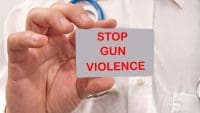Occupational and environmental health nurses (OHNs) promote health and wellness, prevent illness and injury, and protect workers from work-related and environmental hazards. OHNs are recognized not only for their expertise on health-related issues but also for their understanding of the business side of corporate operations.
Roles of OHNs
With businesses facing staggering employee healthcare costs, OHNs work as management partners who develop and implement programs and services that help increase workforce productivity, decrease job-related injuries, reduce disability claims—and overall, improve the bottom line. These programs focus on:
• smoking cessation
• stress management
• weight reduction and nutritional counseling
• immunization
• disaster planning and safety
• employee physical examinations
• chronic disease management.
OHNs wear many hats and gain expertise as their roles evolve and diversify. OHNs may work as case managers to help ill or injured employees get back to work, offer crisis counseling, ensure employers comply with federal and state workforce regulations, monitor workplace hazards, and conduct research to analyze hazards and develop control measures. They also have a strong presence in community groups.
Voice of OHNs
The professional voice of OHNs is the American Association of Occupational Health Nurses, Inc. (AAOHN), an ANA organizational affiliate and the largest group of healthcare providers serving workers, worker populations, and communities. By joining AAOHN, new and experienced OHNs can promote their professional growth. An annual conference, web casts, a monthly newsletter, the peer-reviewed AAOHN Journal, and other resources allow members to stay up-to-date on information and standards in occupational and environmental health nursing. To learn more about AAOHN, visit http://www.aaohn.org/ or call 800-241-8014.

















